Author Archives: Lani
Announcing K12 Online 2007 Presenters
The 2006 K-12 Online Conference provided outstanding opportunities for free, collaborative, accessible professional learning for educators around the globe. The 2007 conference is shaping up to provide more exceptional learning opportunities in the same spirit of collaboration and sharing!
This year’s fantastic line up of keynote presenters will create an inviting and welcoming introduction in which the sharing of ideas among diverse learners working in diverse contexts continues. These distinguished folks will not only extend the conversations, but also invite each of us to stretch and grow as they share their expertise and wisdom in their respective strands. We are delighted they have each agreed to accept their roles as keynote presenters.
The presentations accompanying the keynotes for each strand have been selected by “blind” peer review committees coordinated by each strand convener. The committees’ tasks were extremely difficult as the quality of proposals was again outstanding. We thank everyone who submitted a proposal. We are elated to announce the K12 Online 2007 presenters whose creativity, depth of thought and innovation promise to make K12 Online 2007 exemplary.
The presenters by strand are:
Classroom 2.0:
Silvia Tolisano
“Travel Through Space and Time”
Drew Murphy
“Step by Step- Building a Web2.0 Classroom”
Chris Harbeck
“Release the Hounds”
Vance Stevens, Nelba Quintana, Doris Molero, Sasa Sirk, and Rita Zeinstejer
“Motivating Student Writers by Fostering Collaboration through Tagging and Aggregating”
Wendy Wolfe
“If All My Classes Did This”
Konrad Glogowski
“Assessment and Evaluation”
Anne Davis
“Putting the Pedagogy into the Tools”
Dean Shareski
“Design matters”
Jeff Utecht
“Sustained Blogging in the Classroom”
New Tools:
Liz Kolb
“Cell Phones as Classroom Learning Tools”
Frank Pirrone
“Collaborative Concept Mapping – Breaking the Bounds of Location and Time… for $0.00 per Seat”
Cheryl Oakes, Bob Sprankle, Alice Barr
“Flat Agents of Change”
Anne Davis
“Learn to Blog : Blog to Learn”
Jason Hando
“LMS 2.0 – Engaging Learners Using More Advanced Techniques and the Odd Mash-up inside Moodle”
Sharon Betts
“Oodles of Googles”
Kevin Jarrett and Sylvia Martinez
“Second Life: K-20 Educators Exploring Virtual Worlds – Panel”
Kurt Paccio and James Gates
“The Electric Slide! Twenty-First Century Style”
April Chamberlain
“Trailfire”
Professional Learning Networks:
Jen Wagner, Cheryl Oakes, Vicki Davis, Sharon Peters
“Webcasting for Educators: Expanding the Conversation”
Brandi Caldwell
“Creating PLE’s with TLC”
Kevin Hodgson and Bonnie Kaplan.
“The Collaborative ABC Project: Using Technology to Tell Stories”
Lee Baber, Paul Allison, Susan Ettenheim and Thomas Locke
“Building Online Communities for Youth”
Jeff Utecht
“Online Professional Development”
James Folkestad
“Changing a System: Network Centric Learning Communities”
Sharon Peters, Vincent Jansen
“Building a Yardstick for PD Success: Establishing Key Performance Indicators for Web 2.0 Personal Optimized Learning Environments”
Vinnie Vrotny
“Expanding Horizons – Engaging the Adult Members of your Community (Teachers, Administrators, and Parents) through the Use of Personal/Professional Learning Networks”
Alex Ragone and Arvind Grover
“EdTechTalk: A Network of Homegrown Webcasters”
Obstacles to Opportunities:
Patrick Ledesma
“The Technology Specialist as Teacher Leader: Strategies to Ensure Successful Technology Integration and Student Learning in Schools”
Ben Wilkoff
“Starting From Scratch: Framing Change for All Stakeholders”
Karen Richardson
“Crossing the Copyright Boundary in the Digital Age”
Shawn Nutting
“Creating a Paradigm Shift in Technology”
Lisa Durff
“Pushing the Envelope or How to Integrate Web 2.0 Tools on a Shoestring”
John Pearce
“Me blog? No way!!!”
Sylvia Martinez
“Web 2.0 Share the Adventure”
Joseph Bires
“Acceptable Use and the Web 2.0″
Sylvia Martinez
“Challenging Assumptions about Technology Professional Development”
A Warm Thank You to our “Blind” Peer Reviewers
We had almost 90 different proposals submitted for K12 Online 2007; 36 were selected for the conference. We wanted to ensure that every proposal had a fair chance of being selected for the conference. This is how we did it “¦
Each convener found 3 or 4 volunteers who were educators to act as peer reviewers in their strand. With the close date for submissions, each convener sent the peer review committee members a summary of the proposals that had been submitted for that strand. Each convener organized this a little differently. In some cases the committees knew the other reviewers for their strand, in other cases they didn’t. The peer reviewers, based on the titles and abstracts submitted, chose the best 9 proposals in their strand. In most cases this was a very difficult task.
We structured the process this way in order to avoid both the appearance and possibility of bias by making the selections ourselves. We chose educators who were diverse in terms of their teaching subjects, levels and geography.
How do you properly thank people who agreed to be blind reviewers for K12 Online 2007 whose identities for obvious reasons are not published? We wanted to publicly thank you. You know who you are”¦ thank you; without you this conference would never happen. Your role is an integral part of K12 Online and we are most grateful.
Live Events 2007
UPDATE: Deadline for submitting proposals extended
UPDATE:
We believe the glitch in the proposal form is corrected.
If you did not receive a confirmation email from Lani on June 19, please resubmit your proposal. Then contact Lani by email (lanihall {at} alltel {dot} net) to verify it’s been received. The deadline for submitting proposals is Friday, June 22.
We apologize for the inconvenience. Thanks for your patience and understanding.
There has been a bit of a glitch with the proposal submission form. It seems it is only accepting one submission from each IP address. The last submission overwrites the earlier written material.
The deadline for submissions is extended until Friday, June 22.
For all who made or would like to make multiple proposal submissions:
1. Your final submission has been received.
2. Please email any other submissions to the convener of the strand for which the proposal is submitted.
To all who have not yet submitted a proposal:
1. The deadline is extended until Friday, June 22.
2. You’re encouraged to submit a proposal to present. Personal Learning Networks, in particular, could benefit from your expertise.
Announcing Keynotes! And issuing a second call for proposals
With only 7 days left to submit proposals, Darren, Sheryl, Wes and I are honored to announce the keynotes for K12 Online 2007. We eagerly anticipate the kick off of the conference and each strand by the following distinguished and accomplished educators. “New Tools” features 3 co-keynoters.
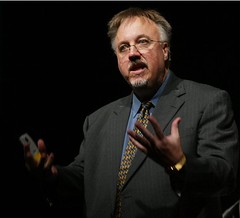 |
Preconference Keynote: David Warlick David Warlick, a 30 year educator,has been a classroom teacher, district administrator, and staff consultant with the North Carolina State Department of Public Instruction. For the past ten years, Mr. Warlick has operated The Landmark Project, a consulting, and innovations firm in Raleigh, North Carolina. His web site, Landmarks for Schools, serves more than ten-million visits a month with some of the most popular teacher tools available on the Net. David is also the author of three books on instructional technology and 21st century literacy, and has spoken to audiences throughout the U.S., Europe, Asia, and South America. David blogs at http://davidwarlick.com/2cents/. |
 |
Classroom 2.0: Clarence Fisher Clarence has been a classroom teacher for the past 13 years. He blogs professionally at remoteaccess.typepad.com, with his class at mr-fisher.edublogs.org and has spoken at conferences across North America. Clarence has won several awards, including one of Canada’s highest teaching awards, the Prime Minister’s Award for Teaching for his integration of technology into daily classroom life. Clarence’s innovative classroom practices have been featured online, in books, magazines, and newspaper articles. He is an advocate of classroom 2.0, learning spaces that take complete advantage of the tools that are available to learners in their quest to learn rather than having school be something that is done to them. |
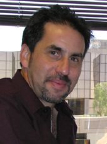 |
New Tools: The Three Amigos: Alan Levine Alan Levine Vice President, NMC Community and CTO for the New Media Consortium (NMC), an international consortium of more than 250 world-class universities, colleges, museums, research centers, and technology companies dedicated to using new technologies to inspire, energize, stimulate, and support learning and creative expression. He is widely recognized nationally and internationally for expertise in the application of new technologies to educational environments and was a pioneer on the web going back to 1993. Alan blogs at http://cogdogblog.com. |
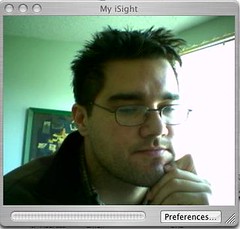 |
New Tools: The Three Amigos: Brian Lamb Brian Lamb is Manager, Emerging Technologies and Digital Content with the Office of Learning Technology at The University of British Columbia. He teaches a course on “Text Technologies” for UBC’s Master of Educational Technology Program. He is also a Research Fellow with Utah State University’s Center for Open and Sustainable Learning. Brian maintains his weblog Abject Learning http://weblogs.elearning.ubc.ca/brian/, where he mutters ll-tempered observations on social learning, open education, disruptive technologies and other such things. |
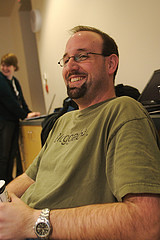 |
New Tools: The Three Amigos: D’Arcy Norman D’arcy Norman is a software developer at the Teaching & Learning Centre, a service department at The University of Calgary. In his current primary role, as an educational technology developer, he explores new technologies and works with faculty to implement tools for blended learning. He has also been involved in the open source development of the Pachyderm project, an easy-to-use multimedia authoring tool. D’Arcy spends a fair amount of time thinking (and rethinking) about the concept of control and copyright, and how they might affect academia. D’Arcy blogs at http://www.darcynorman.net. |
 |
Personal Learning Networks: Derek Wenmoth Derek is currently the Director of eLearning at CORE Education Ltd based in Christchurch, New Zealand. He has a broad background in education, with experience at the primary and secondary school level, and as a teacher educator. He was manager of the eSection at The Correspondence School in Wellington and is currently an adviser to the Ministry of Education. Derek is a regular speaker at conferences and seminars, and maintains a regular blog where he shares his ideas and thinking across a range of areas relating to the use of ICT in teaching and learning. Derek blogs at http://blog.core-ed.net/derek. |
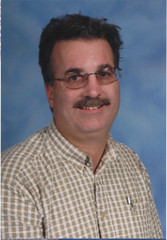 |
Obstacles to Opportunities: Brian Cosby Brian Crosby, an elementary teacher for 26 years, teaches fifth grade in Sparks, Nevada, and has infused technology into teaching since the 1980’s. While piloting a 1:1 laptop program, students in his class utilize many Web 2.0 tools including Skype, Fiickr, blogs and wikis. His award winning student produced video about including a classmate that couldn’t attend school using video-conferencing software has been downloaded by thousands. Brian teaches several popular tech classes for teachers in his role as a Nevada Writing Project Consultant. You can try keeping up with him on his blog “Learning Is Messy” at http://www.learningismessy.com/blog/. |
![]()
We strongly encourage you to join these educators at the conference by sharing your take on “playing with boundaries” in the use of Web 2.0 tools in classrooms and professional practice! It’s time to submit your proposal. The deadline is June 18, only 7 days away!
For your convenience, you can find the initial call for proposals here and the link to the proposals submission form is here.


